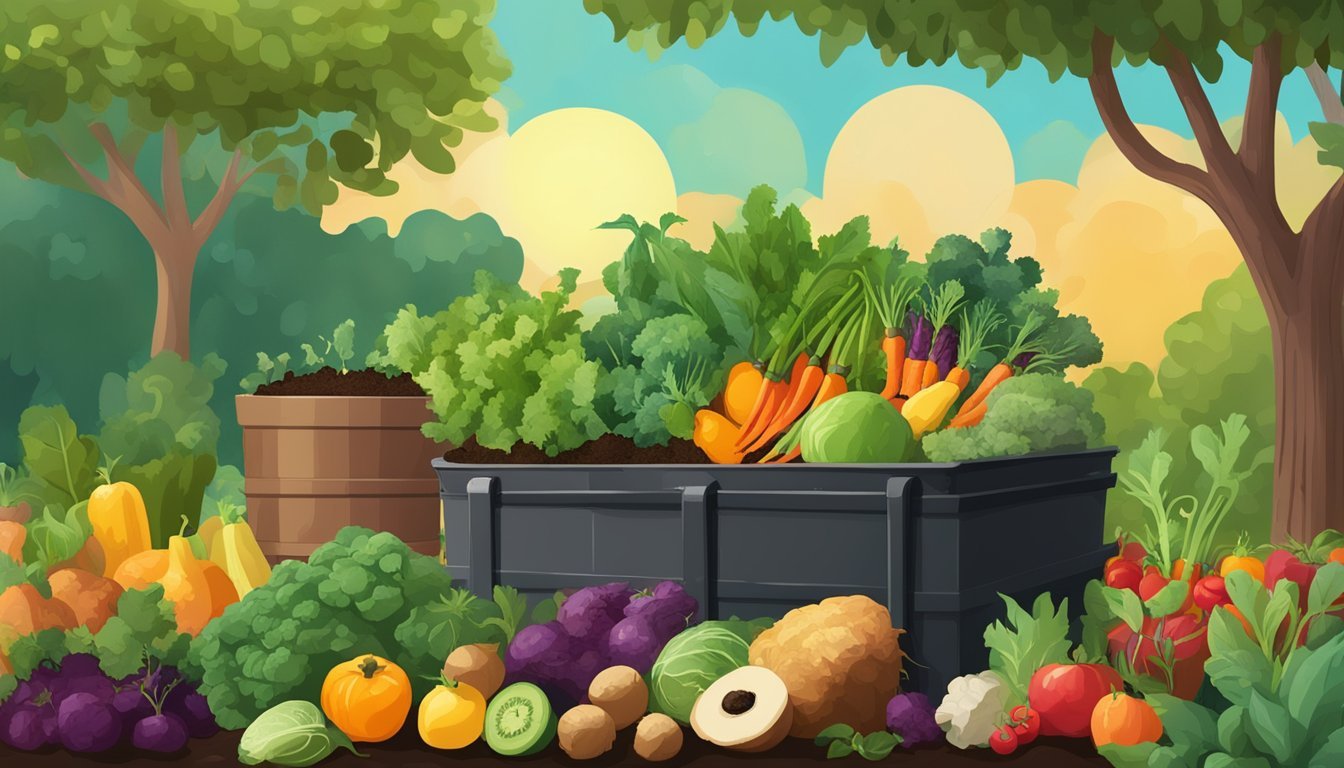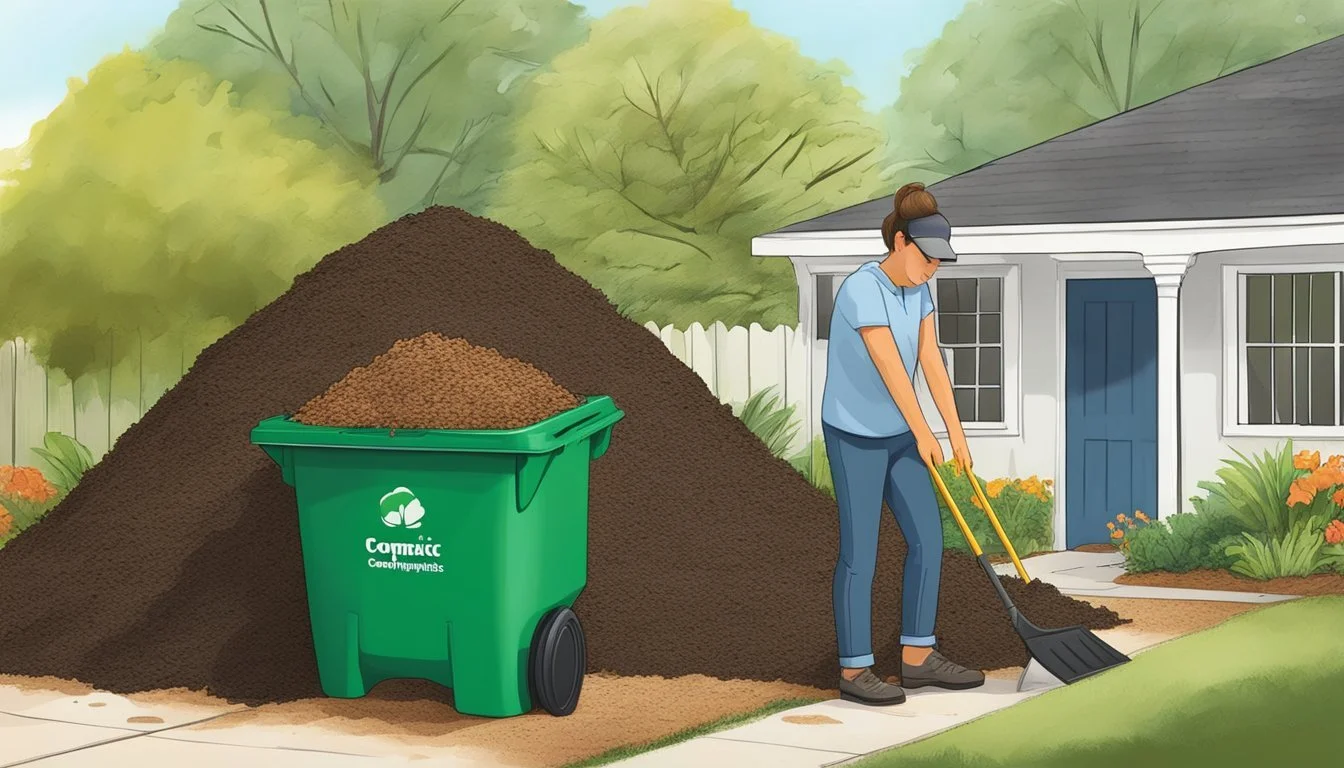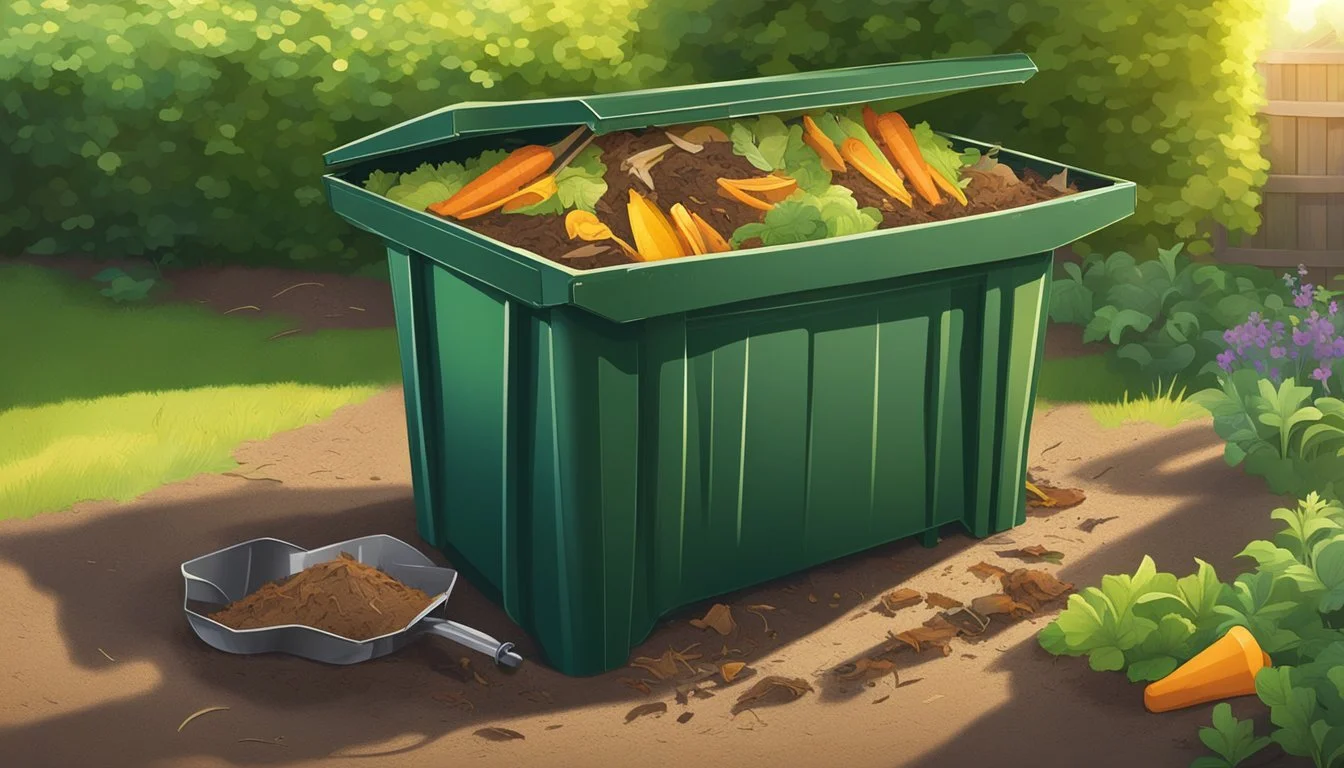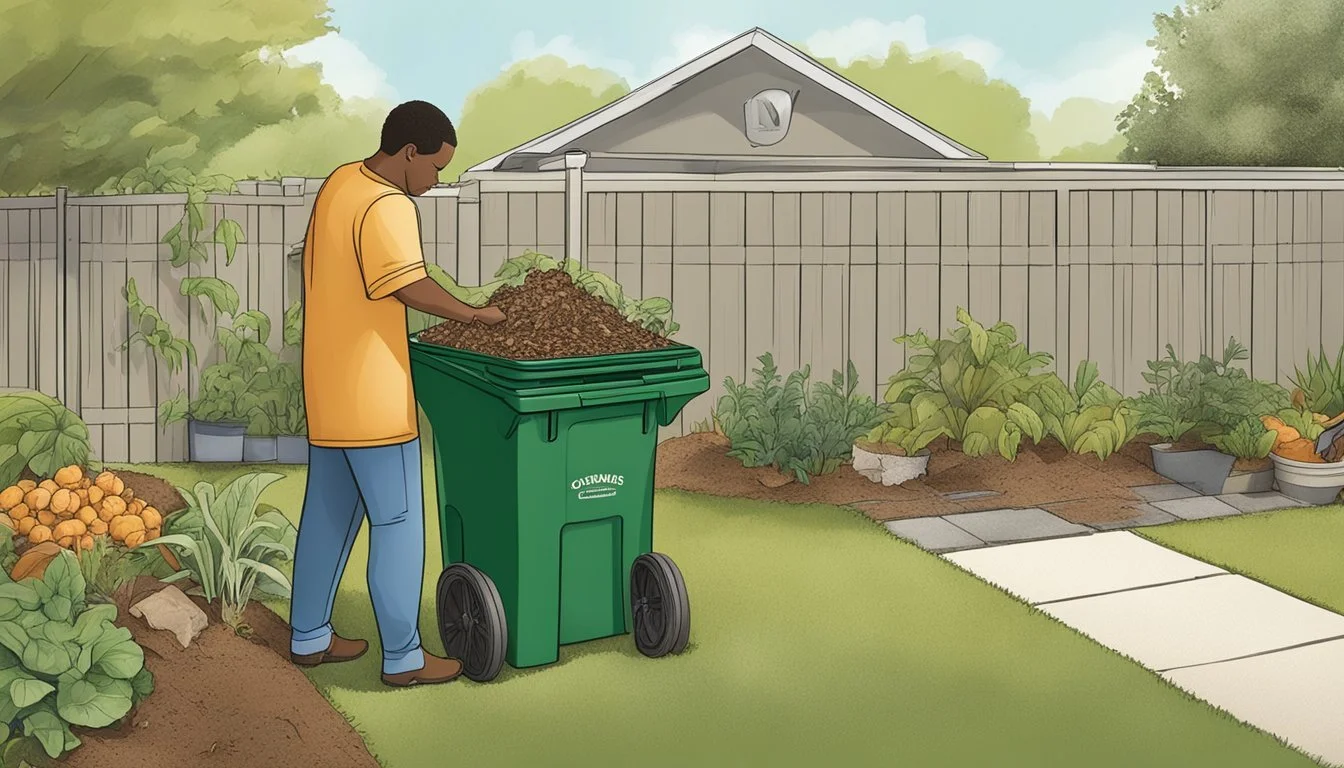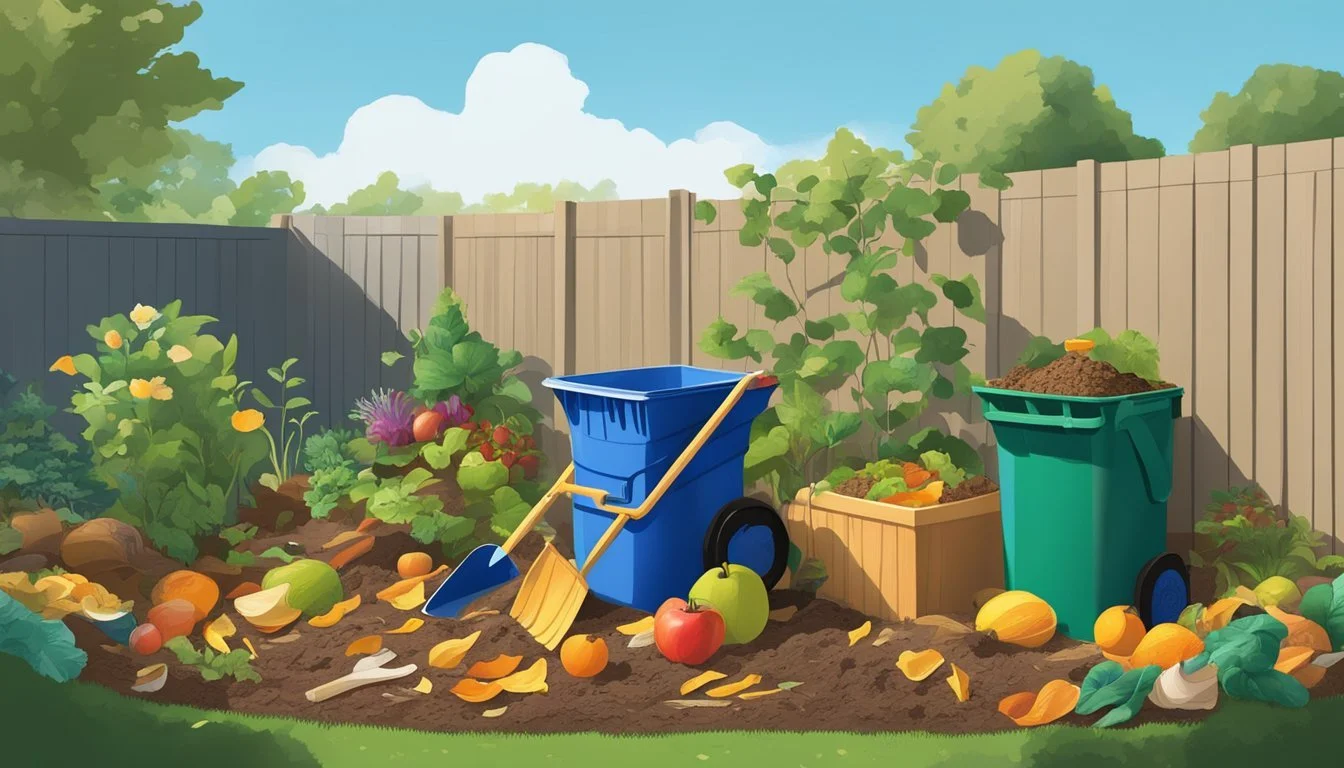Guide to Composting in Clearwater, FL
Best Practices for Local Residents
Composting is a practical and eco-friendly way for Clearwater residents to repurpose organic waste into valuable fertilizer for their gardens. By engaging in this natural recycling process, homeowners in Clearwater can contribute to a greener community while reducing their ecological footprint. The City of Clearwater supports these efforts, acknowledging the benefits of backyard composting, which includes waste reduction, soil health improvement, and conservation of resources.
The local government provides resources and programs to assist citizens in setting up and maintaining their compost systems at home. Interested individuals can participate in an online educational program to learn the essentials of composting and even receive a free compost bin, highlighting Clearwater’s commitment to sustainability initiatives. Moreover, ensuring that the composting process reaches the appropriate temperatures is crucial for breaking down materials like seeds and weeds effectively, turning waste into a nutrient-rich resource.
As composting gains popularity in the region, Clearwater joins neighboring cities in enhancing this environmental endeavor by investing in residential composting programs. These programs support the community’s drive towards zero waste goals, encouraging a hands-on approach to managing organic refuse. Thus, with the available tools and education, residents of Clearwater are well-equipped to adopt composting practices, contributing to the city's overall sustainability efforts.
Benefits of Composting in Clearwater
The city of Clearwater, Florida, recognizes the positive impacts composting has on the environment and community. Throughout Clearwater, composting efforts significantly reduce waste, enrich local soils, and foster sustainable practices.
Environmental Advantages
Composting in Clearwater offers substantial environmental benefits by decreasing the amount of organic waste sent to landfills. By composting, residents lower methane emissions, a potent greenhouse gas that contributes to climate change. Additionally, composting recycles organic matter, minimizing the community's carbon footprint.
Benefits for Clearwater Residents
Residents of Clearwater can take advantage of the city's initiatives, such as the free compost bin giveaway, which encourages household level waste reduction. Sustainability education provided by local authorities, including workshops and online classes, equips citizens with the knowledge to start and maintain a successful compost system.
Advantages for Gardening and Landscaping
In Clearwater, compost acts as a natural soil amendment and mulch, enhancing garden and landscape health. It improves the sandy soil's structure by increasing its ability to retain moisture and nutrients. Compost provides a rich source of organic matter, reducing the need for chemical fertilizers.
Public Education and Community Involvement
The city promotes composting through education efforts like the Clearwater Sustainability School and community composting programs. These resources inspire residents to participate in sustainable practices and demonstrate responsible environmental stewardship.
Local Soil Improvement
Clearwater's sandy soil benefits greatly from composting. It enhances soil structure, increases the soil's capacity to hold water and nutrients, and introduces beneficial microorganisms. The addition of organic matter through composting revitalizes local soils, making them more fertile and robust.
Fundamentals of Composting
The process of composting provides Clearwater residents with an opportunity to convert organic waste into nutrient-rich soil, enhancing their gardens and contributing to a greener environment.
What is Composting?
Composting is the biological decomposition of organic matter by microorganisms under controlled conditions to produce compost. In Clearwater, Florida, composting helps convert leaves, yard trimmings, and kitchen scraps into a beneficial soil amendment.
Composting Basics
To create compost, three basic ingredients are needed: browns for carbon, greens for nitrogen, and moisture to foster decomposition. Browns can include materials like dead leaves and twigs, while greens comprise items like grass clippings and fruit scraps. For successful composting in Clearwater, these components must be balanced.
Choosing the Right Location
Selecting an appropriate location for your compost bin is crucial. It should be a dry, shady spot close to a water source. In Clearwater, you should also consider local regulations that might dictate proper placement, ensuring compliance and efficiency.
Selecting Appropriate Compost Materials
A thriving compost pile in Clearwater should include a mix of green materials like fruit and vegetable scraps and brown materials, such as branches and dried leaves. This mixture ensures your compost is rich in nutrients and breaks down effectively.
Avoiding Harmful Materials
To protect the quality of your compost and follow local Clearwater guidelines, never include meat, bones, or infected plants. These items can attract pests and spread disease to your compost pile and, eventually, your soil.
Constructing Your Compost Pile
Creating an effective compost pile in Clearwater, FL requires careful balance of materials and attention to detail to foster decomposition and produce nutrient-rich compost. Here are specific steps and techniques to guide you through the process.
Starting Your Compost Pile
To begin backyard composting, one needs a designated area or a composting bin. This area should be easily accessible and preferably in contact with soil, allowing organisms from the soil to aid in the decomposition process. Start with a layer of coarse material like twigs or straw to enhance drainage and aeration.
Balancing Greens and Browns
A compost pile requires a balance of green materials, such as vegetable scraps and grass clippings, with brown materials, like dry leaves, twigs, and sawdust for efficient decomposition. Aim for a ratio of about 2:1 of browns to greens to ensure the right mix of carbon and nitrogen.
Maintaining Proper Moisture and Aeration
Compost needs moisture and oxygen to support the micro-organisms that break down organic matter. The compost should be as moist as a wrung-out sponge and should be turned regularly to introduce oxygen and distribute moisture evenly.
Controlling Temperature
The pile's temperature is a key indicator of the composting process. The compost pile should be hot at the center, which indicates that microbes are effectively breaking down the contents. Turning the pile can help regulate temperature and speed up decomposition.
Compost Pile Layering Technique
To construct the pile, use the layering technique by alternating green and brown materials with intermittent layers of soil. Each layer should be about three to four inches deep. Add leaves or sawdust to absorb excess moisture if the pile becomes too wet. When building your pile, you can also include manure as an accelerator to introduce beneficial microbes and further boost the composting process.
Using and Maintaining a Compost Bin
Proper usage and maintenance of compost bins are crucial for efficient decomposition of organic waste into nutrient-rich compost. This section outlines practical steps for Clearwater residents to manage their compost bins, ensuring the waste is transformed while reducing environmental impact.
Types of Compost Bins
There are various compost bins suitable for different needs and spaces. Clearwater offers residents options like tumbler bins, which are easy to turn and regulate moisture and temperature, and stationary bins for those with more space. Each type requires different management techniques to optimize decomposition.
Managing Your Compost Bin
An effective composting bin needs a balance of green and brown materials, appropriate moisture, and oxygen to support the breakdown of organic matter. Residents should layer green materials such as fruit and vegetable scraps with brown materials like dry leaves or shredded newspaper. Keeping the compost in Clearwater's humid climate moist but not soggy is essential. Regular turning introduces oxygen, which is vital for the decomposition process and to maintain the ideal temperature for microbial activity.
Materials Balance
Green Materials (Nitrogen-rich): Food scraps, coffee grounds, grass clippings.
Brown Materials (Carbon-rich): Dry leaves, twigs, shredded newspaper.
Moisture and Aeration
Moisture Level: Should feel like a wrung-out sponge.
Aeration: Turning the bin weekly to introduce oxygen.
Troubleshooting Common Compost Issues
When maintaining a compost bin, certain issues may arise, such as bad odors, pests, or slow decomposition. A bad smell usually indicates a lack of oxygen or an excess of wet materials. Introducing more brown materials and turning the bin should rectify this issue. If the compost is too dry, it slows down the decomposition; thus, adding water and green materials can help. Pest problems often result from exposed food; burying food waste deeper in the compost can prevent this.
Common Issues and Solutions
Odors: Add brown material, turn more frequently.
Dry Compost: Sprinkle water, add nitrogen-rich green material.
Pests: Bury food waste, ensure the bin has a secure lid.
Enhancing Compost Quality
To optimize compost quality in Clearwater, attention to the composting process's elements such as mixture ratios, environmental conditions, and end-usage is crucial.
Enriching the Compost Mixture
For a compost pile to thrive, it must contain a balanced mix of green, nitrogen-rich materials, such as fruit and vegetable scraps, and brown, carbon-rich materials, like dry leaves and shredded paper. This balance aids in maintaining the appropriate microbial activity for efficient decomposition. Residents in Clearwater can potentially enhance their soil amendment by ensuring their organic matter is diverse and well-balanced.
Speeding Up Decomposition
Factors influencing the rate of decomposition include oxygen, temperature, and moisture levels. Regularly turning the compost pile facilitates oxygen flow, accelerating the decomposition process. Clearwater's climate can be leveraged to maintain consistent temperatures within the compost, fostering faster breakdown of materials. Clearwater citizens can utilize local resources, such as free composting education, to learn optimal composting practices.
Creating Compost for Specific Plants
Different plants require various soil properties to flourish. Adjusting the compost pile by adding relevant nutrients and materials can tailor a potting mix to suit specific plants, making it an effective tool for diverse gardens and landscapes. This customization allows for higher quality mulch and a more targeted soil amendment approach, leading to thriving Clearwater gardens.
Compost Maturation and Usage
The final compost should be mature before use, indicated by a dark, crumbly soil-like texture and earthy smell. Mature compost serves as a potent amendment for Clearwater's gardens by enhancing soil structure, fertility, and microbial life. It can also be utilized as mulch to conserve soil moisture and control weeds, demonstrating its versatility as a landscape asset.
Community and Municipal Initiatives
Clearwater, Florida, has demonstrated a progressive approach to composting through its diverse programs and educational initiatives aimed at reducing solid waste and promoting sustainability throughout the city.
Clearwater Composting Programs
The City of Clearwater offers backyard composting programs that encourage residents to participate in community composting efforts. These programs involve the distribution of free compost bins to residents who fulfill certain participation requirements, significantly contributing to the city's waste reduction goals.
Educational Workshops and Resources
Educational workshops are regularly organized to facilitate the growth of composting knowledge within the community. The Clearwater Sustainability School provides free virtual courses on the basics of composting, showcasing the city’s commitment to education and public awareness. These efforts are bolstered by resources from local extension offices, which offer support and information on best practices for composting.
Residency Requirements and Benefits
To participate in Clearwater’s composting initiatives, one must be a resident of the city. Clearwater residents benefit from these programs by receiving complimentary bins after completing the required educational component. This strategy not only promotes waste management education but also provides a tangible incentive to residents to engage in sustainable practices.
Collaboration with Nearby Cities
Clearwater collaborates with neighboring cities, such as Dunedin and Largo, in its composting efforts. These partnerships reflect a broader regional commitment to sustainability and resource conservation. By sharing resources, knowledge, and strategies, these municipalities enhance the overall effectiveness of their individual composting programs.
Local Regulations and Resources
In Clearwater, compliance with local composting regulations is essential, and a variety of resources are available to support resident participation in sustainability efforts.
Composting Regulations in Clearwater
Clearwater, Florida maintains specific composting regulations to ensure environmental safety and community health. Residents interested in composting must adhere to these guidelines to contribute to the city’s sustainability initiatives. For instance, maintaining the appropriate balance of green and brown materials is crucial to prevent attracting pests and generating unpleasant odors.
Finding Composting Resources and Support
The City of Clearwater provides resources such as educational workshops and a free compost bin for residents who enroll in the city’s virtual course on composting. This accessible approach underscores Clearwater's commitment to resource conservation and community education. Additionally, the local extension office can be a valuable resource for residents seeking expert advice on composting methods and best practices.
Connecting with Local Compost Enthusiasts
Community composting efforts are active in Clearwater, fostering a network of local compost enthusiasts. Clearwater residents can engage with community-sponsored composting programs and share insights on effective composting techniques. Participation in these programs often leads to valuable learning experiences and contributes to the city’s collective environmental goals.
Conclusion
Composting in Clearwater, FL, stands as a testament to the city's commitment to sustainability and the environment. Clearwater residents have access to community composting programs that underscore the importance of reducing landfill waste and enriching soil health.
Residents can easily obtain a compost bin by participating in educational programs provided by the city. This initiative not only encourages composting but also educates participants on its benefits.
Composting is an excellent way for individuals and families to contribute positively to the environment by transforming kitchen scraps and yard waste into valuable, nutrient-rich soil.
Clearwater's approach to composting aligns with its Sustainability and Greenprint 2.0 efforts, reinforcing the city's dedication to environmental stewardship. The ongoing support and practical tools offered to residents aim to foster a community that values waste reduction and resource conservation.
In the future, continued advancements in organic waste processing and regulation will evolve, but the foundational practices of composting remain a reliable and effective method for maintaining Clearwater's natural beauty. Promoting these environmentally conscious habits ensures a greener tomorrow for the region.


